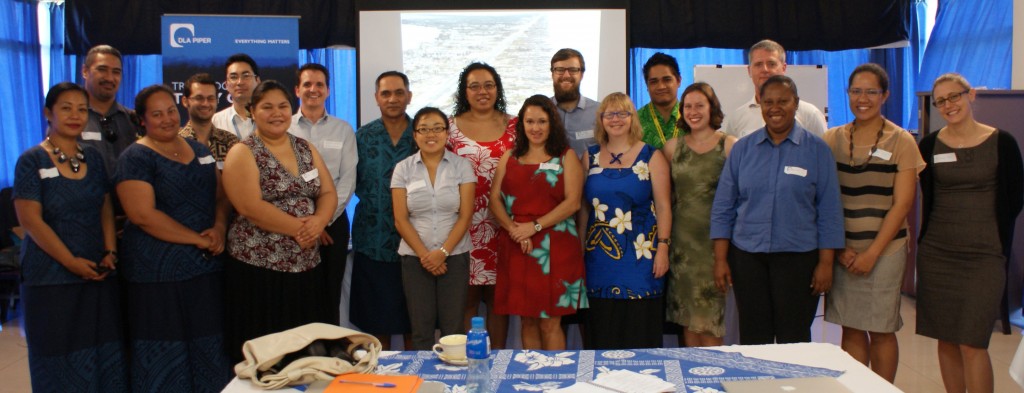Last week some of us from the Office of the Ombudsman attended a workshop on Climate Change and the Law. Climate change is an issue that has a specific and worrying relevance here in the Pacific, where populations live on small islands, some of which are low-lying, and all of which are subject to the extreme weather events of climate change. Only recently in December 2012, Samoa was hit by Cyclone Evan, which devastated large areas of the islands. There are many human rights that are affected by climate change, such as the right to life, the right to take part in cultural life, the right to use and enjoy property, the right to an adequate standard of living, the right to food, the right to water, the right to sanitation, the right to development, the right to adequate housing, and the right to the highest attainable standard of physical and mental health. Other areas of rights that come into play are gender rights, education, and trade. This has been highlighted in such international documents as the Male’ Declaration on the Human Dimension of Global Climate Change (November 2007), and several Human Rights Council Resolutions: 7/23 (2008); 10/4 (2009); 18/22 (2011).

Presenters and attendees of the 2013 UNESCO/DLA Piper Climate Change and the Law Workshop in Apia, Samoa
Consequently, climate change is an important issue for those of us here at the Samoa NHRI to be aware of and engaged in. Three of us participated in the workshop, which was held by UNESCO and DLA Piper. Presenters were from UNESCO Samoa, DLA Piper Australia, the University of Queensland TC Beirne Law School, Climate Planning consultancy, and the Secretariat of the Pacific Regional Environment Program (SPREP). The workshop covered such issues as how to use the law to instigate climate change adaptation methods with new coastal developments, and existing coastal developments. There were also discussion of the early stages of how climate change is being addressed in the courts in Australia, and potential ways in which lawyers can use climate change arguments in their work. UNESCO was able to focus on specific areas in Samoa that are at issue, for example greater public education on conduct during natural disasters (e.g. not driving through flood waters or standing on collapsed structures). SPREP presenters spoke about practical solutions that are being implemented throughout the Pacific, such as road reinforcement and the promotion of eco-based adaptation solutions (e.g. replanting mangroves). All of this information is incredibly important in Samoa, where climate concerns need to become more at the forefront of the minds of government, organisations, the private sector, and the general public.
